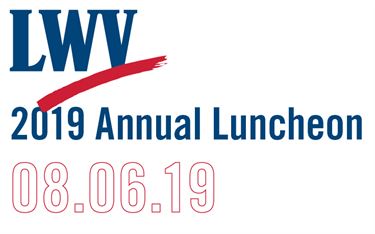
FROM OUR MANAGING PARTNER


NEW FEDERAL TAX LAWS AMEND DEDUCTIBILITY OF GOVERNMENT FINES ISSUED AS A RESULT OF REGULATORY VIOLATIONS
READ MORE

NEW EEO-1 REPORTING REQUIREMENTS AND SALARY HISTORY BAN PROHIBITING ALL EMPLOYERS FROM SEEKING WAGE INFORMATION FROM JOB APPLICANTS
READ MORE

HOW ENROLLMENT IN AMAZON’S BRAND REGISTRY MIGHT BENEFIT YOUR BUSINESS
READ MORE

GCT ATTORNEYS NAMED AS LEADING AND EMERGING LAWYERS IN ILLINOIS FOR 2019 AND BARBARA L. YONG HONORED BY LEAGUE OF WOMEN VOTERS OF ILLINOIS
READ MORE
We at Golan Christie Taglia extend our appreciation and best wishes to each of you. It continues to be our honor to work with you to ensure the most favorable outcomes for you and your business.

Stephen L. Golan
FOCUS: Corporate
NEW TAX CODE WILL AFFECT BUSINESS TAX DEDUCTION FOR GOVERNMENT-ISSUED FINES
CHANGES TO FEDERAL TAX LAWS AMEND DEDUCTIBILITY OF AMOUNTS OWED TO THE GOVERNMENT AS A RESULT OF REGULATORY VIOLATIONS

The new law replaces the original language regarding business tax deductions in TCJA Section 13306 amended Section 162(f). As described in IRS Notice 2018-23, starting in 2018, businesses that are the subject of government enforcement may not deduct payments made to or at the direction of the government “in relation to the violation of any law or the investigation or inquiry by such government or entity into the potential violation of any law.” This change has significant implications for businesses named in a lawsuit as well as those being investigated by a government entity, and not just those businesses ultimately found to be in violation of federal law. Any payments owed to the government as a result of enforcement action, including the costs of the investigation or any resulting litigation, are now non-deductible for tax purposes.
The new law applies to court orders and settlements finalized on or after December 22, 2017. Under this new rule, payments are non-deductible if paid to or at the direction of (i) a government, (ii) a governmental entity, or (iii) certain self-regulating organizations, for the violation—or investigation by such above-referenced entities for a potential violation—of any law.
Other than restitution, Code Section 162(f) provides for two other exceptions. Section 162(f)(3) provides amounts paid pursuant to a court order in a private lawsuit are not subject to the general rule barring deductions because “no government or government entity is a party.” Second, Code Section 162(f)(4) applies to an exception for amounts paid as taxes due. Thus, this is a clear carve out of payments made alternatively to a government or governmental entity.
However, one important narrow exception to this rule remains. Under the exception, an amount that would otherwise not be deductible under the Code may be deducted if the taxpayer satisfies three requirements. First, the payment amount must be owed as restitution or remediation of property “for damage or harm that was or may be caused by violation of any law or the potential violation of any law” (Notice 2018-23). Second, the amount paid must bring the business into compliance with the law in question, but only if the exact amount to be paid is identified in a settlement agreement or court order that it is restitution, or an amount paid to come into compliance with the law. Finally, Section 162(f)(2)(A)(iii) allows businesses to treat a restitution payment owed due to failure to pay any tax imposed under the Code as if it were that tax payment, as long as the tax payment would have been deductible if it were paid on time (Notice 2018-23).

In practice, the amended Code makes it more difficult for businesses to prove that payments made as a result of government enforcement are deductible. For example, a business will no longer be able to claim that payments to resolve a violation are compensatory (and thus deductible) without a court order or settlement agreement. Under the new tax law, the payments being claimed as restitution or to bring the business into compliance with the law must be specifically identified as compensatory in the court or settlement papers. In addition, the enforcing government entity must also file an information return describing the amounts required to be paid that fall within the scope of Code Section 162(f) and any amounts eligible for restitution per Code Section 162(f)(2). See new Code Section 6050X.
Even so, Code Section 162(f)(a)(2)(A) indicates that the IRS may not consider a court order or settlement agreement definitive proof of the compensatory nature of government payments. This suggests that the IRS is not bound by legal documentation of compensatory business payments and may choose to disqualify a deduction based on the premise that the actual nature or origin of the payment does not match the manner in which it has been identified by the documentation. Depending on the circumstances, the IRS may also attempt to argue that the payments do not qualify as restitution to the victims of the violation of the law, or that payments identified as deductible were paid instead of other non-deductible amounts and so are not deductible, either.
In effect, the business must convince the entity responsible for penalizing them in the first place to allow them to deduct their fines, penalties, or settlement payments on their tax return. Such discussions may become contentious, with negotiations now accounting for actual values after taxes paid. On top of that, the IRS may still disagree. Experts predict that the current tax code may ultimately lead to fewer settlement agreements with enforcement agencies.
Tax law, guidance, and precedence can change frequently and quickly. Businesses involved in enforcement actions with a government entity should involve tax counsel early in any settlement negotiations.

EMPLOYERS MUST SUBMIT PAY DATA ON EEO-1 REPORT BY SEPTEMBER 30, 2019

Every year, employers with 100 or more employees (and federal contractors with at least 50 employees) complete and file an EEO-1 report with the Equal Employment Opportunity Commission (EEOC), which reflects certain demographic data about the company’s workforce. This year, in addition to the information that has always been requested by the EEO-1 reports, by September 30, 2019, employers now have to provide information about pay and hours worked, broken down by race, sex and ethnicity, from their 2018 and 2017 payrolls.
Employers are advised to begin the process of compiling the pay data as soon as possible because, unlike the prior reports which primarily required a company to report on headcounts, the new information is likely housed in systems operated by outside payroll vendors who may or may not have the ability to provide detailed breakdowns of the information as required to complete the EEO-1 report.
The new EEO-1 reporting requirements also present a perfect opportunity for employers to conduct internal audits of pay equity, to determine whether certain compensation differences are explainable by legitimate, nondiscriminatory reasons or whether there is evidence of pay discrimination that the company should take action to remedy.
ILLINOIS LEGISLATURE PASSES THE SALARY HISTORY BAN WITH BIPARTISAN SUPPORT

H.B. 834, which is likely to be signed by Governor Pritzker and go into effect within 60 days after he signs, prohibits all employers from seeking information from job applicants about prior wages or salary. The version of the bill that was passed by both the Illinois House and the Illinois Senate includes penalties and potential injunctive relief to job applicants who bring a claim that the law was violated. In addition to prohibiting employers from asking applicants for their prior salary history, it also prohibits employers from seeking compensation information from any current or former employer of the applicants.
The law does not prohibit applicants from voluntarily disclosing information about current or prior salary but it does state that even when voluntarily disclosed by the applicant without prompting, the employer cannot consider or rely on the voluntary disclosures as a factor in determining whether to offer employment, or in determining future compensation.
If you have questions or need additional information, please contact an employment attorney at Golan Christie Taglia, LLP.

AMAZON BRAND REGISTRY — WHAT YOU NEED TO KNOW

Amazon is the premier online shopping tool in the world. Amazon carries over 606 million different products that span all types of categories of consumer products. Amazon’s market reach and visibility make it an attractive way to sell a product.
Amazon deals with so many brands and products that it can’t always control vendors who sell knock offs and infringe on trademarks belonging to other sellers. It’s an Internet-age problem. So, Amazon created the Amazon Brand Registry to help combat the problem.
The Amazon Brand Registry has existed for several years in various forms but was recently overhauled in May of 2017. The program helps sellers protect their product listings and offers additional tools to optimize those listings for success. What Amazon doesn’t tell you, is that you may not be able to sell on Amazon unless you enroll in Amazon’s Brand Registry. And you have to have a registered trademark to enroll in Amazon’s Brand Registry.
BENEFITS OF AMAZON’S BRAND REGISTRY Amazon’s Brand Registry includes important tools such as: (a) giving you control over your product titles, images, and descriptions; (b) reducing matching errors with similar companies that can occur when items are listed; (c) better listing tools for products with high volumes; (d) search tools so you can monitor potential infringement of your trademarks and report to Amazon; and (e) Amazon can flag and remove counterfeit items within the Brand Registry.
For private label1 sellers, it’s the only way to get “Enhanced Brand Content,” which is how Amazon allows the brand owner to modify the product description and enhance images of the product.
Amazon’s Brand Registry has a marketing benefit as well. It legitimizes your business to your target consumers.

PREPARING FOR ENROLLMENT IN AMAZON’S BRAND REGISTRY You have to have a federally registered trademark to sign onto Amazon’s Brand Registry. Unregistered trademarks, state trademarks, and trademark applications are not enough.
The trademark process requires the filing of an application with the United States Patent and Trademark Office (USPTO), examination of the application by the USPTO and publication of the trademark for opposition.2 This process can take between 6 and 12 months if the application is uncontested. If it is contested, either because the USPTO refuses registration or a third party opposes registration, the process can take years. Or, you may not be able
to register the trademark at all.
So, the very first thing to do is contact a trademark attorney. Have the attorney conduct a due diligence search to make sure your chosen trademark is available for registration. Then file trademark application as soon as possible to begin the process.
You can use the lead time to trademark registration to prepare your products and business plan for selling through Amazon.
ENROLLING IN AMAZON’S BRAND REGISTRY To begin the Amazon Brand Registry enrollment process, you provide Amazon with your trademark registration number(s), a list of your product categories, a brand website, a list of countries where your products are manufactured and distributed, and images of your brand’s logo, products, and packaging.
Amazon guides you through the filing requirements. Amazon then sends a verification code to the law firm that filed your trademark. You contact your lawyer who gives you the code and you provide it to Amazon to finish the enrollment.
There is no fee for applying and being accepted into the Amazon Brand Registry. However, you can only apply if you have paid for a professional account with Amazon.
CONCLUSION Listing a product for sale on Amazon can result in increased revenues and exposure of your products. The Amazon Brand Registry goes hand in glove with that goal. It also has the side benefit of compelling you to protect your trademark.
1 A private label is where one company creates a product to be sold and branded by another company.
2 An opposition is a proceeding brought by someone to bar registration of a trademark that interferes with their superior rights in the same or similar trademark.

LEADING LAWYERS NAMES 24 GCT ATTORNEYS AS 2019 LEADING AND EMERGING LAWYERS
We appreciate all of our clients, friends and referral sources who help us to continue to receive professional accolades. It is gratifying to have our attorneys recognized for excellence in our field. We are pleased to announce the following Golan Christie Taglia attorneys have been named as Leading and Emerging Lawyers in Illinois for 2019, four of which (in bold) are new additions to the lists. Please join us as we congratulate:

Leading Lawyers is a division of Law Bulletin Publishing Company. Leading Lawyers surveys lawyers, asking them which of their peers (their competitors) they would recommend to a family member or friend if they could not take a case within their area of law or geographic region. To maintain the quality and credibility of the survey, lawyers cannot nominate themselves or anyone at their own law firm. Based upon survey nominations and approval by the Leading Lawyers Advisory Board, only the top lawyers are nominated and eligible for membership in Leading Lawyers. Leading Lawyers limits the total number of Leading Lawyers in each state to less than five percent of all lawyers licensed to practice law in that state.
The selection process for Emerging Lawyers is similar except that a candidate must be 40 years old or younger and the total number of Emerging Lawyers is limited to no more than two percent of all lawyers licensed to practice in Illinois.
LEAGUE OF WOMEN VOTERS OF ILLINOIS HONORS BARBARA L. YONG
At its annual luncheon, the League of Women Voters of Illinois will honor GCT partner, Barbara L. Yong for her contribution to the effort to raise awareness of pay inequality. Ms. Yong founded Equal Pay Day Chicago, which is part of a worldwide movement committed to bringing into focus the wage gap that exists between men and women and minorities—and working to close it.
The event will be held on Tuesday, August 6, 2019 at the Metropolitan Club of Chicago. To register, visit bit.ly/LWVILAnnualLuncheon, or for more information, email info@lwvil.org.


